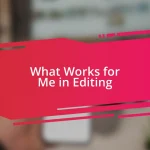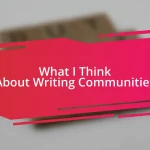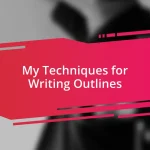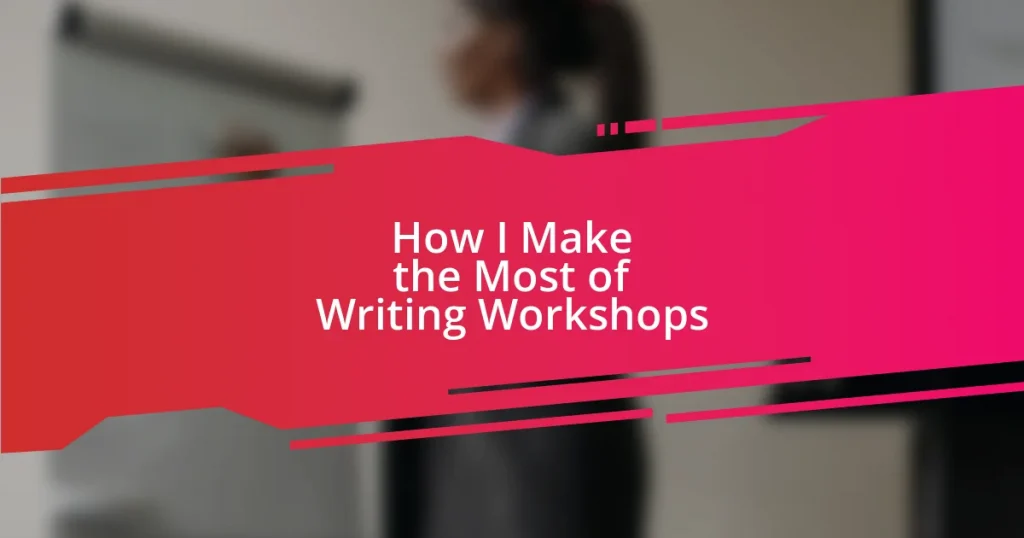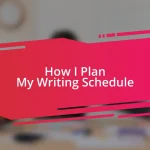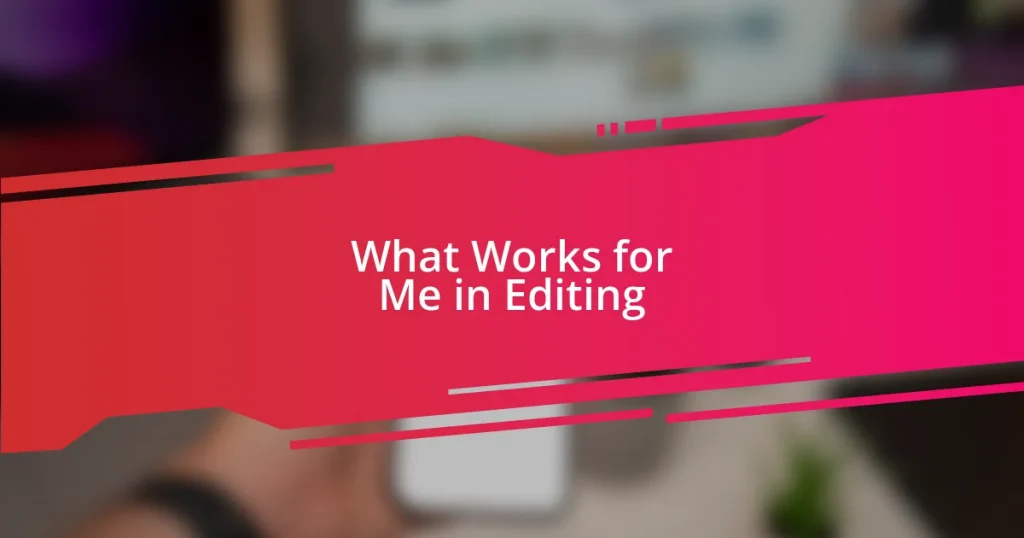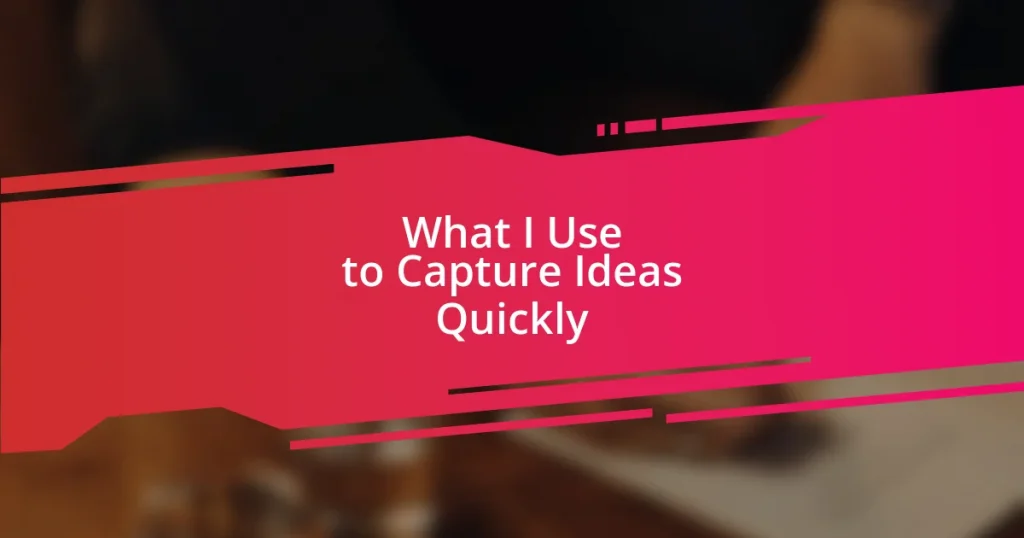Key takeaways:
- Writing workshops foster creativity and community, providing a collaborative environment for growth and emotional connection among writers.
- Choosing the right workshop involves considering factors such as instructor background, workshop focus, group size, and personal writing goals.
- Engaging actively through listening, asking questions, and sharing feedback maximizes the learning experience and helps build lasting connections with peers.
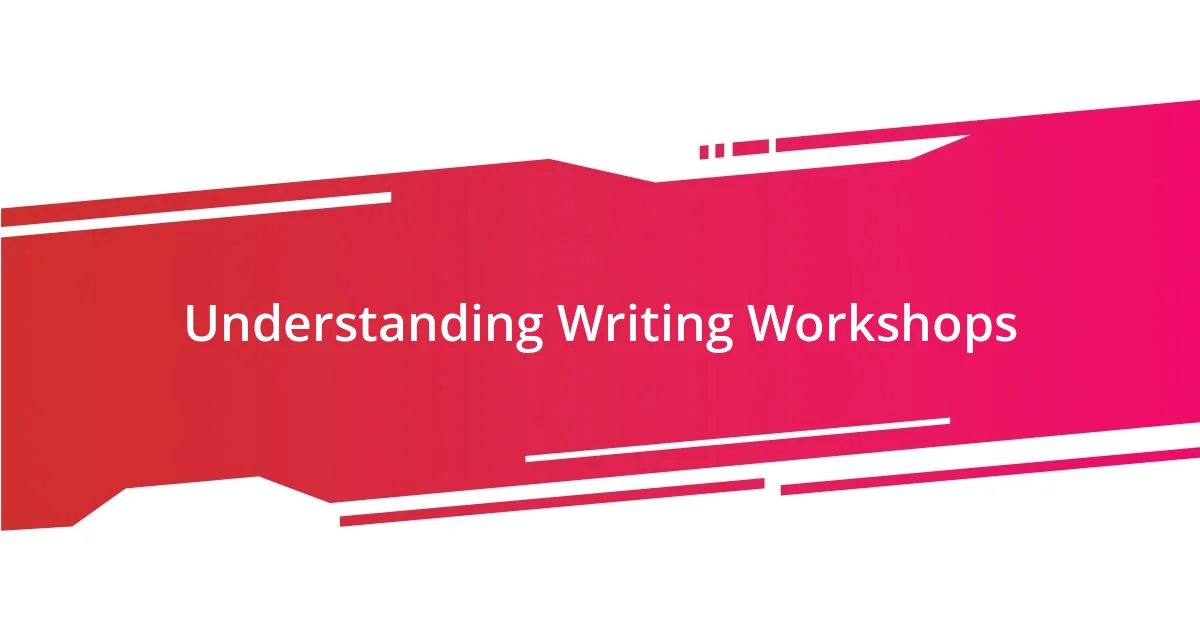
Understanding Writing Workshops
Writing workshops offer a unique blend of creativity and community. I remember my first workshop vividly; it felt like stepping into a vibrant world of ideas and inspiration. Each session was filled with a mix of nerves and excitement as writers shared their work and provided feedback, creating a safe space for growth.
What truly sets writing workshops apart is the collaborative environment. Have you ever experienced the thrill of hearing your words resonate with others? In those moments, I realized that feedback is not just criticism; it’s an opportunity to refine my voice and elevate my writing to new heights. There’s something profoundly validating about having a group of peers support your artistic journey.
Beyond the practical aspects, writing workshops can ignite a sense of belonging among fellow writers. Sharing vulnerabilities and triumphs can forge lasting connections. I’ve found that some of my closest friendships emerged from these experiences, where we celebrated each other’s milestones like they were our own. This emotional depth transforms workshops into memorable journeys of self-discovery and creativity.
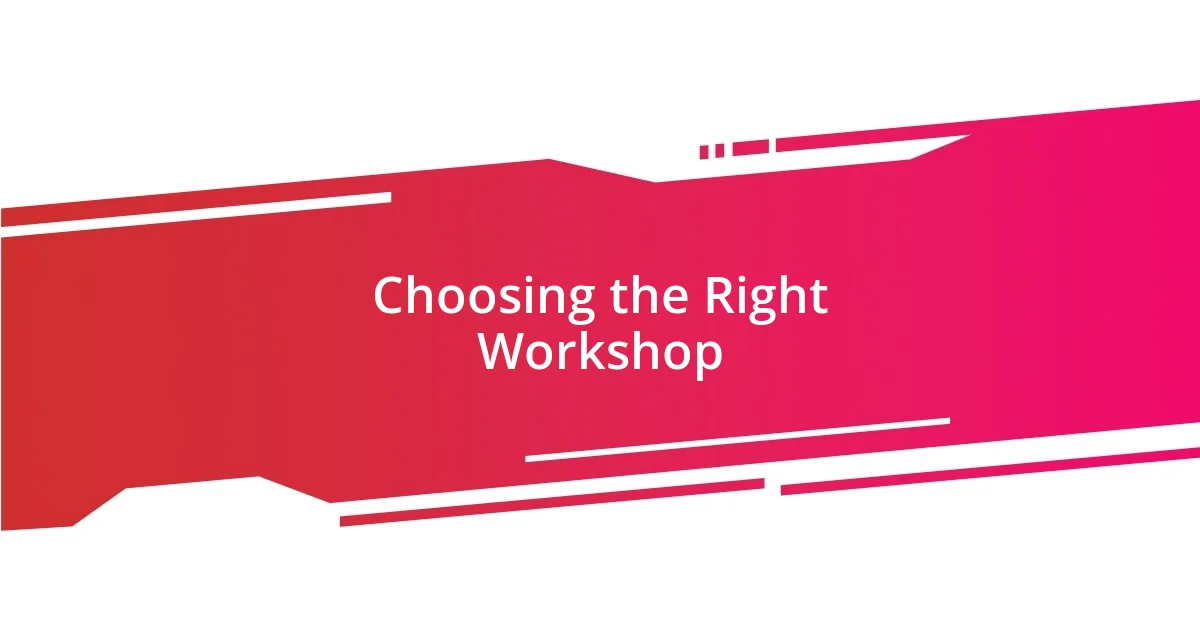
Choosing the Right Workshop
Choosing the right writing workshop can feel overwhelming, given the plethora of options available. I recall the excitement mixed with trepidation when I first searched for workshops to join. Each one promised a unique experience, making it crucial to align your personal goals with what the workshop offers. Consider what you hope to achieve—whether it’s honing your skills, exploring a specific genre, or simply finding a supportive community.
Here are some factors to help you narrow down your choices:
- Instructor Background: Research their experience and writing credentials. A great instructor can make all the difference.
- Workshop Focus: Identify if the workshop specializes in fiction, poetry, memoir, or another genre. Choose one that resonates with your interests.
- Group Size: Smaller groups often allow for more personalized feedback and connection.
- Participant Experience Levels: Look for workshops that cater to your skill level, whether you’re a novice or an experienced writer.
- Format: Decide between in-person or online sessions based on your comfort and availability.
- Duration and Commitment: Ensure you can commit the necessary time without adding undue stress to your schedule.
I’ve learned that the right workshop environment fosters growth, not just through lessons but also through the connections you build. My best experiences came from workshops where I felt comfortable sharing my raw work. The journey of finding the right space can be as rewarding as the writing itself.
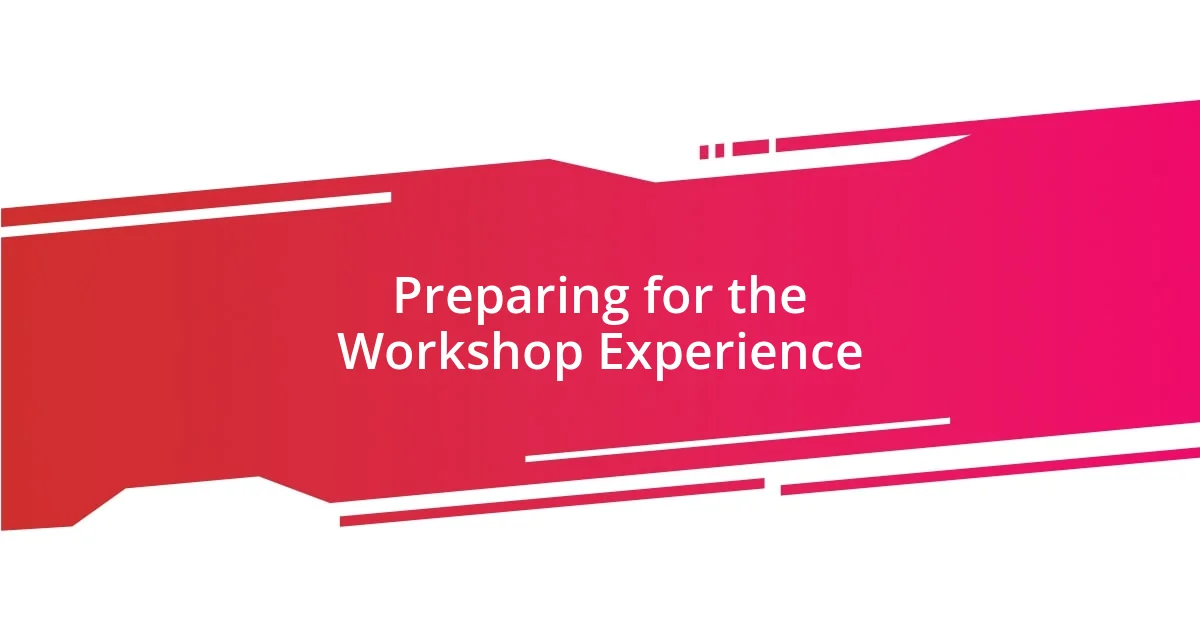
Preparing for the Workshop Experience
When preparing for a writing workshop, I believe that mindset is crucial. I like to approach each session with an open heart and a willingness to learn. It’s essential to let go of any perfectionism and embrace the creative chaos that comes with sharing your work. I remember my first workshop—going in with a mix of excitement and fear. But as I started listening to others, I realized we all shared the same struggles, and that made the experience truly liberating.
Equipping myself with my writing goals also proved beneficial. Before each workshop, I jot down what I hope to achieve—whether it’s improving my dialogue or getting insights on character development. This clarity allows me to seek specific feedback that aligns with my aspirations. During one memorable workshop, I was focused on crafting a compelling opening scene. Having my goals in mind helped me ask targeted questions, leading to invaluable discussions with fellow writers that truly enriched my experience.
Finally, preparing my materials in advance is something I can’t stress enough. I always have a polished piece ready for critique, along with a few drafts at various stages of completion. This way, I can share a range of work and gain perspective from my peers. My prepared pieces usually include a blend of my best and most vulnerable work, allowing for rich dialogue around my writing journey. Each workshop became a treasure trove of insights—both from the critiques of my pieces and the observations I made while reviewing others.
| Preparation Aspect | Description |
|---|---|
| Mindset | Approach with an open heart and a willingness to learn. Let go of perfectionism to embrace creativity. |
| Writing Goals | Jot down specific objectives for what you hope to improve or learn; ask targeted questions for valuable feedback. |
| Materials | Prepare polished pieces and drafts to share; balance best and most vulnerable work for rich feedback. |
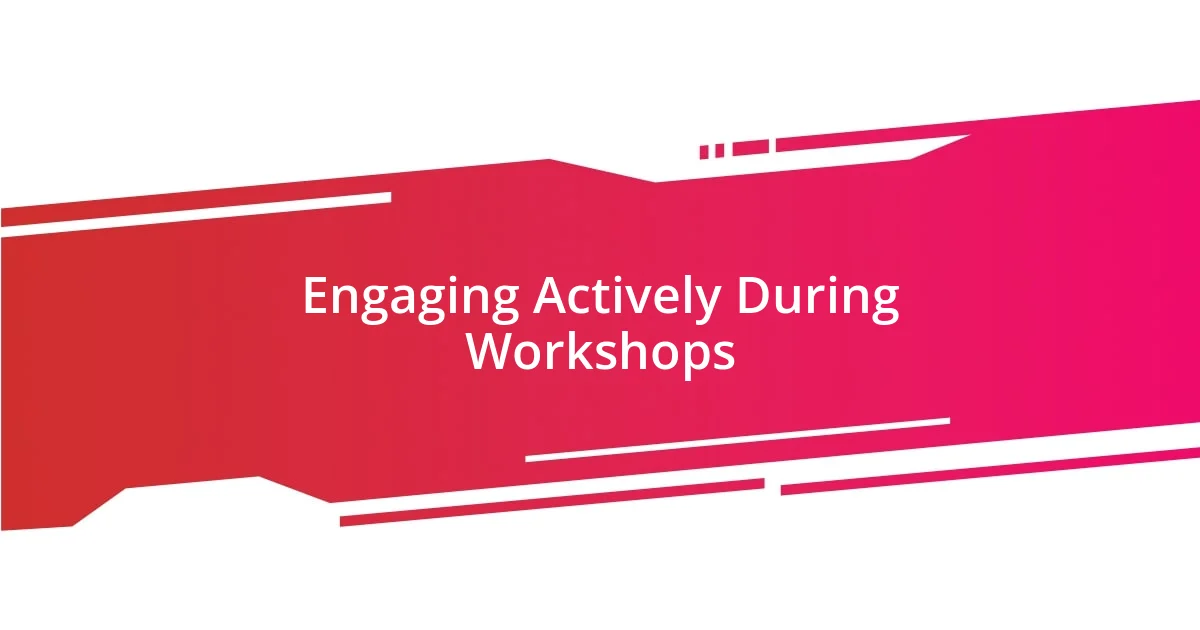
Engaging Actively During Workshops
During workshops, I’ve discovered that actively engaging isn’t just about speaking up; it’s about listening deeply, too. I still remember a session where I sat in awe as my peer shared her story. I was struck by the emotions woven into her words. It made me realize the power of vulnerability in writing. Have you ever felt that spark when someone else’s experience resonates with your own? It reminds us we’re all in this together.
I encourage asking questions—not just for your own benefit, but for the group. One time, I posed a question about character motivation, and it sparked a lively discussion that opened up new perspectives. It was enlightening to hear how others approach their characters. This kind of interaction enhances our collective understanding, making us better writers. So, don’t hesitate to voice your curiosity!
Lastly, I find that sharing feedback is a great way to engage with fellow participants. Offering insights from your own experiences can strengthen your connections. I remember giving one of my classmates feedback that helped clarify her story’s theme, which was a rewarding moment for both of us. Have you ever had that feeling when your input helps someone else shine? It creates a supportive environment that encourages everyone to push their boundaries.
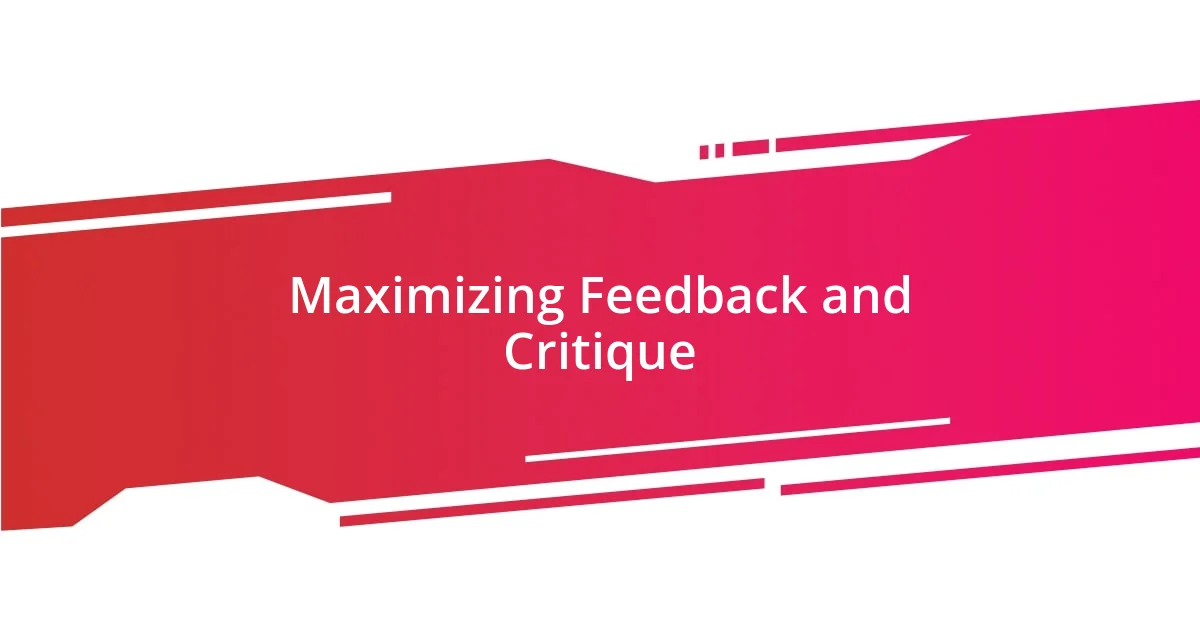
Maximizing Feedback and Critique
Maximizing the value of feedback and critique in writing workshops is something I’ve come to appreciate deeply. I remember a time when I received critique that felt a bit harsh at first, but then I realized it was a goldmine of insight. Have you ever faced tough feedback that initially stung but later transformed how you viewed your work? Embracing constructive criticism, rather than shying away from it, can propel our writing to the next level.
One strategy that works wonders for me is to take notes during feedback sessions. I jot down key points and impressions from my peers, which helps me digest their perspectives later. For example, during one workshop, I noted how several participants pointed out similar issues in my character’s development. That collective observation was a significant wake-up call for me! It reinforced the idea that sometimes we get too close to our work to see it clearly.
Additionally, I find it beneficial to request follow-up questions from my peers after they read my work. This practice not only shows that I’m open to ongoing dialogue but also encourages deeper analysis. When I sought clarity on a particular plot twist I wrote about, one participant asked a question that challenged my thinking and opened up a whole new avenue for exploration. Isn’t it fascinating how a simple question can lead to a breakthrough moment? Engaging with feedback in this way turns critique into a collaborative journey, enriching the experience for everyone involved.
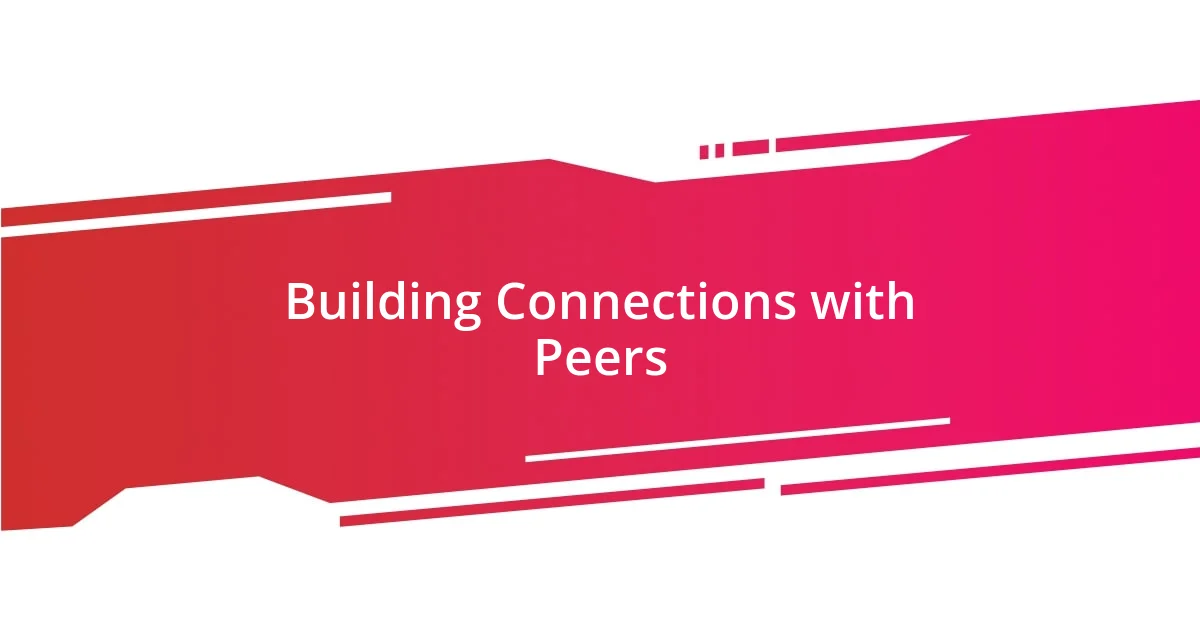
Building Connections with Peers
Building connections with peers in a writing workshop has always been a cornerstone of my own experience. I vividly recall attending my first workshop where I connected with another writer over our shared struggles with character development. One evening, our conversation flowed so easily that we ended up brainstorming each other’s plots late into the night. Ever have that moment when a fellow writer just “gets” you? It’s magical and can often lead to newfound inspiration.
I’ve also learned the value of informal conversations outside of structured sessions. Grabbing a coffee or sharing a meal with fellow participants allows for genuine connections to flourish. I remember a time when I shared my fears about a project, and one peer responded with her own vulnerabilities. It was a powerful reminder that we all face insecurities, and talking about them made us feel less alone. Isn’t it comforting to realize we’re all on this journey together, navigating the ups and downs of the writing process?
As we exchange ideas and personal stories, I find it’s essential to celebrate each other’s successes too. Acknowledging my peers’ achievements can create an encouraging atmosphere that fosters creativity. After a friend received praise for her short story during our workshop showcase, our group erupted in applause. It filled the room with positive energy and reaffirmed our commitment to supporting one another. Have you considered how celebrating small victories can elevate everyone’s experience? It’s these connections and shared moments of triumph that make workshops truly memorable.
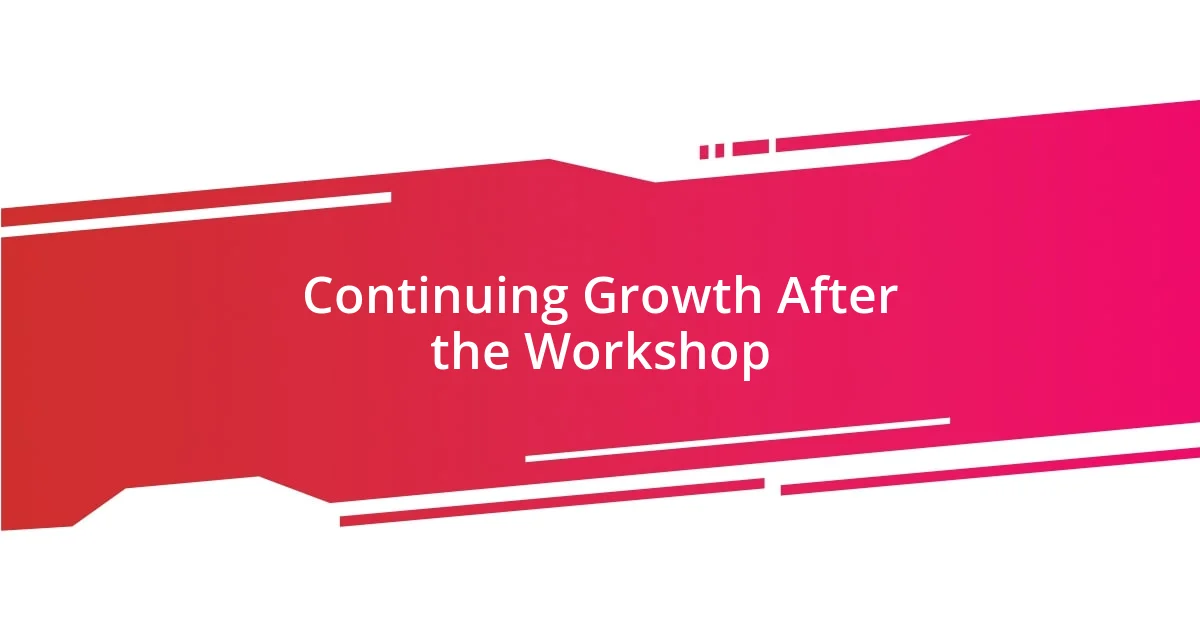
Continuing Growth After the Workshop
I believe that the journey of growth doesn’t stop when the workshop ends. In fact, I often find that the real learning happens in the days and weeks after. There have been times when I’ve taken a piece I workshopped and revisited it with fresh eyes. It’s incredible how the feedback from my peers can linger in my mind, prompting me to dig deeper into my characters or plot. Have you ever experienced that moment of clarity weeks later, when you realize what your story truly needs?
One practice I’ve adopted is setting aside time each week to reflect on the feedback. I might revisit my notes, but I also let my thoughts flow freely in a journal. This helps me process much of what I learned. I remember a week where I took a solitary walk while pondering my latest draft. Unexpectedly, an idea hit me about the story’s climax that I had once felt stuck on. It was a moment of inspiration that emerged quietly as I processed my experiences, showing me that even mundane moments can spark creativity.
Additionally, I find it important to keep engaging with the writing community. After my last workshop, I initiated an online group where we share our progress, challenges, and victories. This ongoing dialogue keeps the momentum alive and cultivates a sense of accountability. I often ask myself, how can I keep this spirit of collaboration thriving? Reaching out to my fellow writers for advice or simply to share a triumph has not only enriched my work but has also deepened our relationships. I’ve come to cherish these interactions as they transform into a support system that fuels continued growth in my writing journey.
